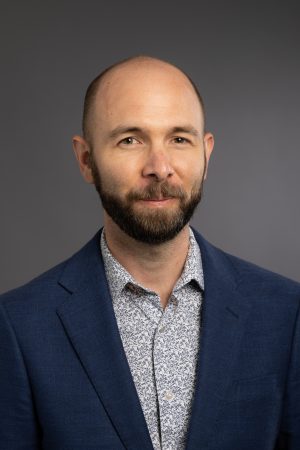Department Administration
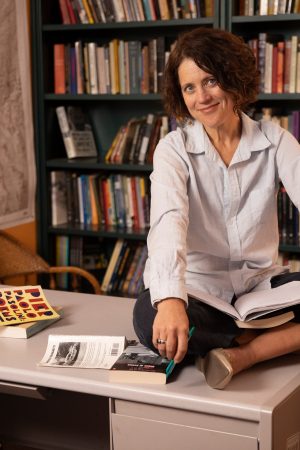 Gioia Woods, Ph.D.
Gioia Woods, Ph.D.
Department Chair & Professor of Humanities
President’s Distinguished Teaching Fellow and Fulbright Fellow Dr. Gioia Woods is the author of the Western Writers Series monograph Gary Paul Nabhan (Boise State University Press, 2005), co-editor of Western Subjects: Autobiographical Writing in the North American West (University of Utah Press, 2005), and editor of Left in the West: Literature, Culture, and Progressive Politics in the American West (University of Nevada Press, 2018). Her teaching and research areas include environmental humanities and ecocriticism, western American literature and culture, and 20th century Cold War literature and culture. Dr. Woods has published numerous essays about 20th century literary criticism, ecocriticism, and biographical criticism. Her current research focuses on City Lights Bookstore and Press and its influence on free speech, independent press, and the culture of resistance. She served as the President of the Western Literature Association in 2010 and President of the NAU Faculty Senate from 2017-2021. Dr. Woods leads the NAU Summer Sustainability Program, Tuscany: Nature, Culture, Sustainability in Siena, an environmental humanities program which takes an interdisciplinary and hands-on approach to discovering the relationship between nature and culture.
 Paul Donnelly, Ph.D.
Paul Donnelly, Ph.D.
Associate Chair & Professor of the Comparative Study of Religions
Fulbright Fellow Dr. Paul Donnelly earned his Ph.D. in Buddhist Studies from the University of Wisconsin-Madison. His teaching and research interests include Tibetan Buddhism and Tantric Hinduism with secondary studies in Western Esotericism and Religion and Film. Dr. Donnelly received a Fulbright-Nehru Award for Academic and Professional Excellence Award in 2014 in support of his research on a little-known Himalayan Buddhist pilgrimage route, the focus of his recent article, “Where the Heroes and Sky-Goers Gather: A Study of Saurata Pilgrimage” in Religions (2017). Additional publications include the book Like a Waking Dream: The Autobiography of Geshe Lhundup Sopa (Wisdom Publications, 2012), the article “Liberation through Seeing: Screening The Tibetan Book of the Dead“ (Religions 2018), and several contributions to the Oxford Research Encyclopedia of Religion.
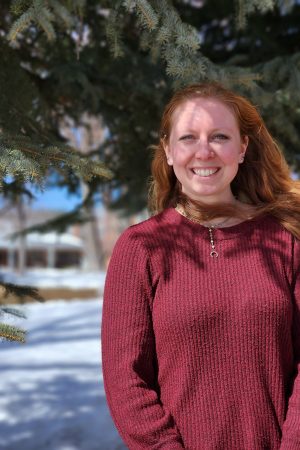 Avi Callan
Avi Callan
Academic Program Coordinator, Intermediate
Avi Callan joined Comparative Cultural Studies in Fall 2022. She earned her B.A. in History with minors in Asian Studies and Comparative Study of Religions from NAU in 2019. Avi received an M.Ed. graduate degree in Human Relations with a certificate in Positive Behavior Support at NAU in 2023.
Faculty
 Carli Anderson, Ph.D.
Carli Anderson, Ph.D.
Assistant Teaching Professor of the Comparative Study of Religions and Humanities
Public Humanities Program Coordinator
Dr. Carli Anderson joined CCS in fall 2021 and holds a Ph.D. in Religious Studies from Arizona State University. Her research focuses on contested religious spaces and looks broadly at how contemporary interpretation of Biblical and other religious texts conceptualize and construct those spaces for different communities. Accordingly, her work is based on a blending of textual hermeneutics and religious anthropology and informed by theories of ritual, pilgrimage, space, memory and religious emotion. Her dissertation is a study of the Biblical Rachel as an “emplaced” cultural figure at the site of Rachel’s Tomb in Jerusalem, exploring the multiple facets (social, political, religious) that Rachel takes on for the women who visit the site of her tomb and the ways they interpret and apply her textual story. Her work with the intersection of Biblical interpretation and politics inspired a presentation of “‘When Earth’s Curse Shall Be Removed’: Interpretations of the Genesis Creation/Fall Narrative in Mormon Women’s Suffrage Rhetoric” at the National Society of Biblical Literature conference in 2018. She also assisted in editing multiple critical edition volumes of the Dead Sea Scrolls Reader series published by Brill.
Jason BeDuhn, Ph.D.
Professor of the Comparative Study of Religions
Guggenheim and National Humanities Center Fellow Dr. Jason BeDuhn is an advisor to UNESCO’s Atlas of the Silk Road project and former chair of the Department of Humanities, Arts, and Religion (2000-2004). He holds a Ph.D. in the Comparative Study of Religion from Indiana University (1995), an M.T.S. in New Testament and Christian Origins from Harvard Divinity School (1987), and a B.A. in Religious Studies from the University of Illinois (1984). His areas of research include Biblical Studies, Ancient Christianities, Manichaeism, Religions of West Asia in Late Antiquity, ritual and and self-forming practices, and method and theory in the study of religion and history. He is currently engaged in a multi-year collaborative project to edit and translate an ancient Coptic Manichaean manuscript with funding from the National Endowment for the Humanities and the Australian Research Council. The first of four volumes of the edited Coptic text and English translation has been issued by Brill Publishers, The Chapters of the Wisdom of My Lord Mani (2018). Dr. BeDuhn is the author of The Manichaean Body in Discipline and Ritual (The Johns Hopkins University Press, 2000), recipient of the American Academy of Religion’s “Best First Book” Award in the category of History of Religions. He also authored Truth in Translation: Accuracy and Bias in English Translations of the New Testament (University Press of America, 2003), a controversial critique of doctrinal bias in contemporary English Bible translations. The first two volumes of his trilogy, Augustine’s Manichaean Dilemma, were published by University of Pennsylvania Press in 2010 and 2013. He has also published a reconstruction of the contents of the earliest Christian Bible, dating to the second century, entitled The First New Testament: Marcion’s Scriptural Canon (Polebridge 2013).
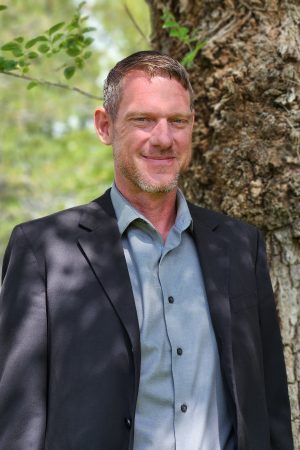 Eric Breault, Ph.D.
Eric Breault, Ph.D.
Assistant Teaching Professor of the Comparative Study of Religions and Humanities
Dr. Eric Breault graduated with a Ph.D. in Religious Studies from Arizona State University in 2022. His research examines the modern intersections of lived Catholicism and Occultism in the use of material objects appropriated within the category of “folk magic.” His dissertation “A Subversive Gathering: Material Culture, Lived Catholicism, and the Occult” outlines how lived Catholicism and Occultism converge within a gathering of religious practitioners who seek to subvert dominant social narratives that accuse them of deviancy. He will be teaching HUM 101: Introduction to Global Humanities and REL 150: Religions of the World during the fall semester at NAU.
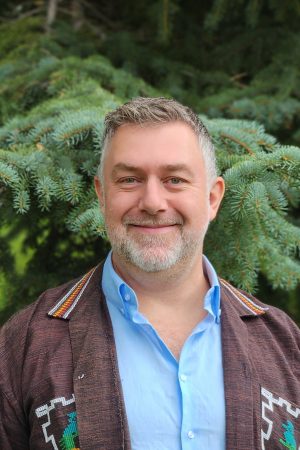 Marco Cabrera Geserick, Ph.D.
Marco Cabrera Geserick, Ph.D.
Assistant Professor of Humanities
Latin American Studies Program Coordinator
marco.cabrera-geserick@nau.edu
Dr. Marco Cabrera Geserick is a specialist in Latin American history and Cultural History and holds a Ph.D. in History from Arizona State University. He previously taught at Rhodes College and Gustavus Adolphus College, among others, where he designed courses on Modern Latin America, Colonial Latin America, Indigenous Peoples of the Americas, Heroes and Myths, and Memory Studies. His research explores issues of memory and history in nineteenth-century United States and Latin America. As a result, Lexington Books published his book The Legacy of the Filibuster War: National Identity and Collective Memory in Central America in 2019. A revised version of the book will be available in Spanish in 2023. Additional publications include the article “Conquest Without War: U.S. Expansionism, The Age of Revolution, and the First Filibuster” in Age of Revolutions (2021) and “Usos políticos de las batallas de Santa Rosa de 1856 y 1955; o, cómo fallar al inventar tradiciones” in Diálogos Rev. Elec. de Historia, Vol. especial: 77-97 (2015). Dr. Cabrera Geserick has also been interviewed for the podcast Historically Thinking and gives public talks for organizations such as the National Library of Costa Rica (2022 and 2021). In 2022, he was appointed as a member of the Academia Morista Costarricense.
 Alexandra Carpino, Ph.D.
Alexandra Carpino, Ph.D.
Associate Dean of the College of Arts and Letters & Professor of Art History
Internationally recognized art historian of Etruscan art Dr. Alexandra Carpino earned her Ph.D. and M.A. in Art History from the University of Iowa and an A.B. in Classical and Near Eastern Archaeology at Bryn Mawr College. Her publications include her first book, Discs of Splendor: The Relief Mirrors of the Etruscans (The University of Wisconsin Press, 2003), a second book completed with her colleague Dr. Sinclair Bell (Northern Illinois University) A Companion to the Etruscans (Wiley-Blackwell, 2016), and a third book, a co-edited volume entitled Collecting and Collectors. From Antiquity to Modernity (co-editors are T. D’Angelo, M. Muratov and D. Saunders) which includes the papers that were part of a colloquium on “Collecting and Presenting the Etruscans in North America” that she organized for the 2017 Annual Meetings of the Archaeological Institute of America in Toronto. Dr. Carpino is currently working on a fourth book with the working title, The Etruscans’ Grandiose Tang Mirrors in Context: Craftsmanship and Cultural Identity during Romanization. Her recent articles and book chapters include “The ‘Taste’ for Violence in Etruscan Art: Debunking the Myth” (in A Companion to the Etruscans, edited by S. Bell and A. Carpino, 410-430. Malden, MA and Oxford: John Wiley & Sons, Inc., 2016); “The Iconography of the Winged Menrva on Etruscan Engraved Bronze Mirrors from the 5th to early 3rd Centuries BC.” (in Restaging Greek Artworks in Roman Times, edited by G. Adornato, I. B. Romano, G. Cirucci, and A. Poggio, 93-103. Milan: LED Edizioni Universitarie, 2018); and “Death – By Consumption – Interrupted: The Iconography of Vilia on Engraved Bronze Mirrors” (in Consumption, Ritual and Society: Recent Finds and Interpretive Approaches to Food and Drink in Etruria, edited by Laurel Taylor and Lisa Pieraccini. Turnhout (Belgium): Brepols, forthcoming). Dr. Carpino regularly presents her research at national conferences: in 2018, for example, she was part of a panel entitled He, She, and the In-Between: Reassessing Gender and Sexuality in Ancient Mediterranean Art at the Annual Meetings of the College Art Association, while in 2020 and 2021, she presented papers entitled “Death – By Consumption – Interrupted: The Iconography of Hesione on Engraved Bronze Mirrors” and “Not a Taboo: Maternal Undress in Late Classical Etruscan Mirror Iconography” at the annual meetings of the Archaeological Institute of America in Washington, D.C. and Chicago, respectively. She has also been a guest lecturer for the Archaeological Institute of America, most recently delivering the 2021 Anita Krause Bader Lecture in Mediterranean Archaeology for the AIA’s Baltimore Society on the topic of “Mamma Mia! Motherhood Myths on Engrave Bronze Mirrors from Etruria.” In 2020, she participated in the Humanities West Symposium on Etruscan Life and Afterlife (San Francisco) with a presentation entitled “Quintessentially Etruscan: Art and Architecture from the Villanovan to the Etrusco-Roman Period,” and she is currently working on two papers for the 2022 AIA meetings in San Francisco. In addition to her extensive research portfolio, Dr. Caprino served as the Editor-in-Chief of Etruscan Studies: Journal of the Etruscan Foundation (now Italic and Etruscan Studies) for 3 years (2011-2014) and delivered the Archaeological Institute of America’s 2012-2013 Ferdinando and Sarah Cinelli Lecture in Etruscan and Italic Archaeology at the Nashville Parthenon in February 2013. She continues to serve the Etruscan Foundation as a manuscript reviewer and a member of its Advisory Board. In the spring of 2021, she was also invited to be a member of the American Committee for the Corpus Speculorum Etruscorum, an organization dedicated to the publication of all extant Etruscan mirrors. Dr. Carpino also organizes study abroad trips to Italy so that her students can experience art in its original context. In addition to spring break trips to Rome and Florence, she is the faculty director of an immersion experience on “Art and Life in Tuscany,” a program of study that not only looks at Etruscan art and culture but also the Medieval and Renaissance art, heritage and food history of many Tuscan communities. Her next excursion will take place in June 2025.
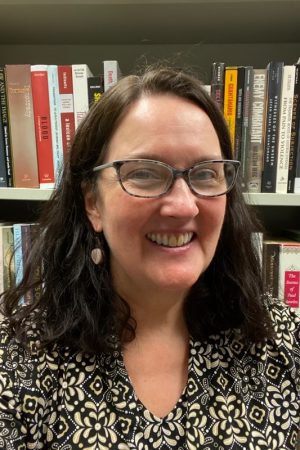 Diana Murtaugh Coleman, Ph.D.
Diana Murtaugh Coleman, Ph.D.
Associate Teaching Professor of the Comparative Study of Religions
Internship Coordinator
Dr. Diana Murtaugh Coleman earned her Ph.D. in Religious Studies from Arizona State University in 2018. A scholar of religion with an emphasis on contemporary Islam, her research reflects a multi-disciplinary expertise in religion and conflict with regional focuses in Southeast Asia, North Africa, and in Muslim minority communities in Europe. Recent publications include “The Amen Temple of Empire” in the New Caribbean Studies anthology Guantánamo and American Empire (Palgrave Macmillan, 2017), the article “Guantanamo: What’s Next?” in the special volume of Sargasso: The Journal of Caribbean Literature, Language, and Culture “On the Phobia of Hope and Everything After” (2019) and the article, “El Sur También Existe” in the special 2019 issue, “Epistemologies of Militarization in the Global South” of Cultural Dynamics. Dr. Coleman’s current book manuscript, Guantanamo: The Amen Temple of Empire, is under revision and examines meaning making practices and the ideological use of military and prisoner bodies at Guantánamo Bay. She most recently presented “Righteousness, Resentment, and Religion in this Time of Plague” at the 2021 AAR Western Region Annual Meeting and another talk at the 7th World Parliament of Science, Religion, and Philosophy organized by MIT World Peace University in Pune, India in October 2021. Dr. Coleman will travel to Austria in 2022 for the “Camps, (In)justice, and Solidarity in the Americas” Commemoration of the 20th Anniversary of the Guantánamo Bay Detention Camps conference hosted by University of Graz.
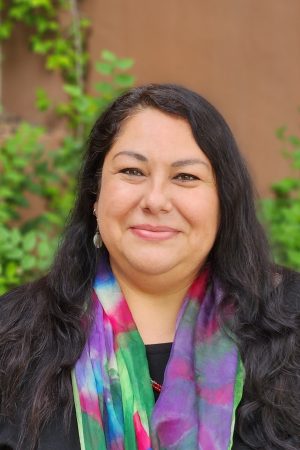 Anabel Galindo, Ph.D.
Anabel Galindo, Ph.D.
Assistant Professor of Humanities
Dr. Anabel Galindo joined the department of Comparative Cultural Studies in 2023. She earned her Ph.D. in History from the University of Arizona. She is currently working on a book manuscript, Mapping Yaqui Mobility, which centers on redefining mobility as a variegated tool that allowed Yaqui people to resist, adapt and negotiate their space and belonging across the Sonoran Desert in a broader temporal and spatial scope. This new cartography redraws Yaqui history, demonstrating that the Yaqui world was far more complex than the binary fixations that have boxed Yaqui history. Her work emphasizes the importance of moving away from misconstrued notions and rigid labels that have come to define Indigenous peoples and histories. Dr. Galindo teaches Hum 130 Introduction to the Southwest and CCS 201 Indigenous Cultural Expressions. Other teaching and research interests include Indigenous Borderlands, Mexico, Latin America, water rights, food culture, and the intersectionality of race, class and identity.
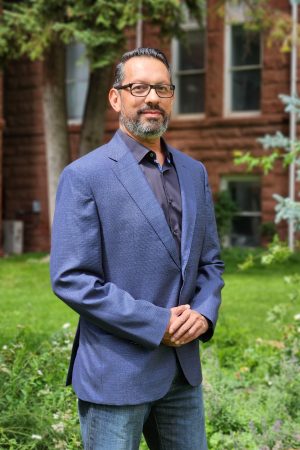 Pedro Gonzalez Corona, Ph.D.
Pedro Gonzalez Corona, Ph.D.
Postdoctoral Fellow
Martin-Springer Institute
Dr. Pedro Gonzalez Corona joined the Martin-Springer Institute as a Postdoctoral Fellow in 2023. A long-time human rights advocate, Dr. Gonzalez designed and taught workshops and training sessions for other advocates and the public as the Regional Campaign Coordinator at Amnesty International USA. His examination of the Holocaust and genocide during his M.A. program at Southern Methodist University led him to the Ackerman Center for Holocaust Studies at the University of Texas, Dallas, where he finished his Ph.D. in 2019. While at UT, he served as a research assistant for Dr. Monica Rankin, Director of the Center for U.S. – Latin America Initiatives, and after graduation, Dr. Gonzalez accepted a position as a Visiting Assistant Professor and taught courses on the Holocaust, human rights, Latin American and Mexican History. His experience includes a fellowship with the Institute for the Study of Global Antisemitism and Policy (ISGAP) and serving as the curator and coordinator of the first Seminar Series of lectures on Antisemitism in Latin America: A Comparative Perspective (December 2022 to April 2021). An additional fellowship at the Institute for the Study of Human Rights at Columbia University led to a forthcoming chapter for the book Remembering Mass Atrocities: Memory Struggles and Cultural Representations in the Global South (Palgrave, November 2023). Dr. Gonzalez’s research examines the Holocaust, human rights, genocide, and state sponsored violence in Latin America.
 Zsuzsanna Gulácsi, Ph.D.
Zsuzsanna Gulácsi, Ph.D.
Professor of Art History & Asian Studies
On sabbatical for spring 2024
Asian Studies Program Coordinator
https://nau.academia.edu/ZsuzsannaGulacsi
Guggenheim Fellow Dr. Zsuzsanna Gulácsi is a historian of religious art specializing in the contextualized art historical study of pan-Asiatic religions that adapted their arts to a variety of cultures as they spread throughout the continent. She received a double major Ph.D. (1998) from Indiana University, Bloomington in Central Eurasian studies (Old Uygur) and art history (Asian Art), and the equivalent of an ABD degree (1990) from Loránd Eötvös University, Budapest in historical ethnography with an emphasis in Turkic studies. Dr. Gulácsi’s teaching career began at Sophia University in Tokyo in Japan, where she was a tenured assistant professor of Central Asian and Buddhist art history (1999-2003). Since 2003, she have been teaching at Northern Arizona University, where she was tenured in 2006 and promoted to the rank of Professor in 2012. Dr. Gulácsi offers courses on Buddhist art, Islamic Art, Arts of China, Arts of Japan, the Arts of the Book, Didactic Arts, Craft of Research in Asian Studies, and a survey of Arts Across the Asian Continent. The main foci of Dr. Gulácsi’s research have been materiality of religion, codicology, and iconography, and the communication of which often involves innovative digital imaging in the forms of pictorial reconstructions and design layouts. She authored three books, Mani’s Pictures: The Didactic Images of the Manichaeans from Sasanian Mesopotamia to Uygur Central Asia and Tang-Ming China (Brill, 2016), Medieval Manichaean Book Art: A Codicological Study of Iranian and Turkic Illuminated Book Fragments (Brill, 2005), and Manichaean Art in Berlin Collections (Brepols, 2001), an edited volume Language, Society, and Religion in the World of the Turks (Brepols, 2018) and a co-authored book A Manichaean Prayer and Confession Book (BBB), Corpus Fontium Manichaeorum: Series Iranica I (Brepols, 2022). Dr. Gulácsi has also published dozens of articles on Manichaean, Eastern Christian, Zoroastrian, Buddhist, and Islamic art. Her research has been supported by multiple residencies at the National Humanities Center, grants by the Japan Society for the Promotion of Scholarship, the American Council of Learned Societies, the American Philosophical Society, and most recently by the Guggenheim Memorial Foundation (2016) and a Getty Residential Scholar Grant at the Getty Villa (2019). Dr. Gulacsi serves on the board of the Grove Encyclopedia of Asian Art and Oxford Art Online and the International Association of Manichaean Studies, as well as the editor of the Art and Archaeology Series of the Corpus Fontium Manichaeorum published by Brepols.
 Dunja Jelesijevic, Ph.D.
Dunja Jelesijevic, Ph.D.
Assistant Professor of the Comparative Study of Religions & Asian Studies
Comparative Study of Religions Program Coordinator
Dr. Dunja Jelesijevic earned her Ph.D. in Japanese religion from the University of Illinois at Urbana-Champaign. She studied at Nagoya University as a Japan Foundation Fellow during 2012-2013. Her research interests include premodern Japanese religion, literature, and performance arts, with a specific focus on religious aspects of Noh theater. Her broader interests include East Asian Buddhism and East Asian folk religions, as well as Chinese religion, philosophy, and literature. Dr. Jelesijevic has written and presented on the topics of religion and ritual in the number of Noh plays. Her most recent publications includes “Dangerous’ Beauty: Imagining the Other in the Noh Play Sesshōseki,” in Narratives Crossing Borders: Cultural Perspectives (2021, Dalarna University, Sweden). Dr. Jelesijevic’s work also include the forthcoming essay “Shinto Spaces and Shinbutsu Interaction in the Noh” in “What is Shinto” (Equinox Publications, UK).
 Björn Krondorfer, Ph.D.
Björn Krondorfer, Ph.D.
Regents’ Professor and Endowed Professor of Religious Studies
Director of the Martin-Springer Institute
Dr. Björn Krondorfer is Regents’ Professor and the Director of the Martin-Springer Institute at Northern Arizona University. As Endowed Professor of Religious Studies, he also teaches in the department of Comparative Cultural Studies. His field of expertise is religion, gender, and culture, and (post-) Holocaust and reconciliation studies. His scholarship helped to define the field of Critical Men’s Studies in Religions. In 2007-08, he was a guest professor at the Institute of Theology and the History of Religion at the Freie University Berlin, Germany, and he held the status of visiting Faculty Affiliate at the University of the Free State, South Africa. He received a Senior Research Fellowship at the Vrije University in Amsterdam (2016/2017) and he is the recipient of the Norton Dodge Award for Scholarly and Creative Achievements. He is currently the VP of the Association for Public Religion and Intellectual Life (APRIL). In 2020, he was elected chair of the Consortium of Higher Education Centers for Holocaust, Genocide, and Human Rights Studies.
He has been invited to speak, present his research, and facilitate intercultural seminars in Armenia, Australia, Austria, Belgium, Bosnia and Herzegovina, Canada, Finland, Germany, Italy, Israel & Palestine, Poland, South Africa, South Korea, Switzerland, The Netherlands, United Kingdom, and the United States. Publications include the revised and expanded edition of his co-authored, Mit Blick auf die Taeter: Fragen an die deutsche Theologie nach 1945 (2022; first edition 2006); Unsettling Empathy: Working with Groups in Conflict (Rowman & Littlefield, 2020); The Holocaust and Masculinities: Critical Inquiries into the Presence and Absence of Men (SUNY 2020); Reconciliation in Global Context: Why it is Needed and How it Works (SUNY, 2018); Male Confessions: Intimate Revelations and the Religious Imagination (Stanford UP, 2010); Men and Masculinities in Christianity and Judaism (London, SCM, 2009); Men’s Bodies, Men’s Gods (New York UP, 1996); Remembrance and Reconciliation (Yale UP, 1995); and Body and Bible (Trinity Press, 1992). He guest-edited four journal issues: Strangers or Neighbors? Jewish, Muslim, and Christian Perspectives on Refugees (CrossCurrents 2018), Antisemitism and Islamophobia (CrossCurrents 2015), Masculinities and Religion (Religion and Gender 2012), and Embattled Masculinities in the Religious Traditions (CrossCurrents 2011). He also published three volumes in German on the cultural and theological legacy of the Holocaust, and edited Edward Gastfriend’s My Father’s Testament: Memoir of a Jewish Teenager, 1938-1945 (Temple UP, 2000). He serves on several editorial and advisory boards.
As director of the Martin-Springer Institute, he has organized several international academic symposia and has mentored the creation of several traveling and digital exhibits, Through the Eyes of Youth: Life and Death in the Bedzin Ghetto; Resilience: Women in Flagstaff’s Past and Present; The Kuykendall World War II Photography Collection; and the permanent installation of a Berlin Wall exhibit at NAU. He has curated the art exhibitions Wounded Landscapes (2014) and Echoes of Loss: Artistic Responses to Trauma (2018). In 2019, he has been awarded a one-month residential fellowship at the Santa Fe Art Institute on the theme of “truth and reconciliation.”
Kent Linthicum, Ph.D.
Assistant Teaching Professor of Humanities
BIS Humanities (90-30) Program Coordinator
Dr. Kent Linthicum joined the Department of Comparative Cultural Studies in 2022. He earned his Ph.D. in English from Arizona State University in 2016 and was a Marion L. Brittain Postdoctoral Fellow at the Georgia Institute of Technology before joining CCS. He teaches courses in the environmental humanities, energy humanities, environmental justice, media studies, and writing. Dr. Linthicum’s research focuses on energy, especially fossil fuels, in culture. His peer-reviewed articles have appeared in Environmental Humanities, European Romantic Review, Nineteenth Century-Contexts, and Studies in English Literature. Public essays by Dr. Linthicum have been published in The Atlantic and Slate among other venues. Dr. Linthicum’s current book project, “Crowning Coal: Slavery, Fossil Fuels, and Literature 1755–1865” shows how print culture facilitated the expansion of British coal and American slavery through metaphor, comparison, metonymy, and other literary devices. His research was most recently supported by the American Council of Learned Societies in 2021-22.
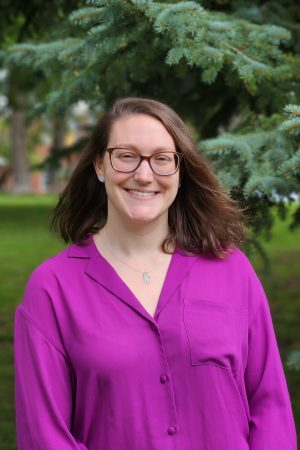
Katrina Maggiulli, Ph.D.
Assistant Teaching Professor of Humanities
Dr. Katrina Maggiulli (she/they) joined the department of Comparative Cultural Studies in 2023. They earned their Ph.D. in Environmental Sciences, Studies, and Policy with a focal in English from the University of Oregon where they also worked as a research assistant for the Just Futures Institute for Racial and Climate Justice from 2022-2023. Dr. Maggiulli’s research is anchored in their prior professional work as an environmental educator with the U.S. Fish & Wildlife Service and wetland non-profits and focuses on the ethical and relational dimensions of biodiversity conservation policy, practice, education, and media representation. Their work has appeared in Environmental Education Research, The Routledge Handbook of Ecomedia Studies, and the forthcoming Creatures in the Classroom: Teaching Environmental Creature Features. Their current book project “Managing Life’s Future: Policing Borders and Worldmaking in U.S. Endangered Species Policy, Practice, and Imaginaries” argues conservation practice that manages species boundaries is fundamentally a practice of worldmaking that brings materially specific species futures into being while preventing others; the project calls for better attending to nonhuman agency in mainstream conservation practice and rethinking the potential role of hybrid plants and animals and processual, evolutionary models. Dr. Maggiulli teaches HUM 175: Environmental Humanities and HUM 101: Intro to Global Humanities. Their other teaching areas of interest include ecohorror, speculative fiction & film, new media, comics studies, science & culture, and environmental/conservation values.
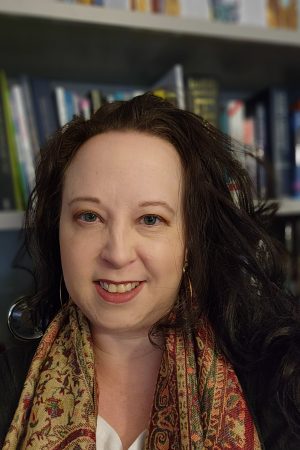 Becky Pratt-Sturges, Ph.D.
Becky Pratt-Sturges, Ph.D.
Associate Teaching Professor of Public Humanities & Museum Studies
Museum Studies Program Coordinator
Dr. Becky (Rebekah) Pratt-Sturges joined CCS in 2013 and completed her Ph.D. in art history at Arizona State University in 2017. She teaches courses on digital humanities, museum studies, and art history and serves as the coordinator for the Museum Studies and Arts and Cultural Management programs at NAU. Dr. Pratt’s areas of research in museum studies include repatriation and restitution of cultural objects, digital technologies in museums and archives, provenance research, and exhibition design and curation. Recently, she completed a certificate in Nazi-era provenance research for the recovery of objects looted during World War II at the Center for Art Ethics (University of Denver). Her courses in digital collection management and digital exhibition design feature the web application platforms Omeka S, ARC-GIS Storymaps, and WordPress.
Dr. Pratt regularly serves as a consultant for digital and physical collections and exhibitions for cultural and arts organizations in northern Arizona and is a board member of Creative Flagstaff. In 2019, she co-curated an exhibition celebrating the Flagstaff Symphony Orchestra’s 70th anniversary and is currently co-curating an exhibit with the Art Museums at NAU for 2024 on the theme of place and identity.
In the field of art history, Dr. Pratt specializes in the visual culture of the late Middle Ages. Her publications include the essay “Taming the Wild in Le livre de chasse: Real Spaces, Imagined Places, and the Medieval Park,” in the anthology Reading the Natural World in the Middle Ages and the Renaissance: Perceptions of the Environment and Ecology (Brepols 2020) and the article “From Animal to Meat: Illuminating the Medieval Hunt” in eHumanista (2013).
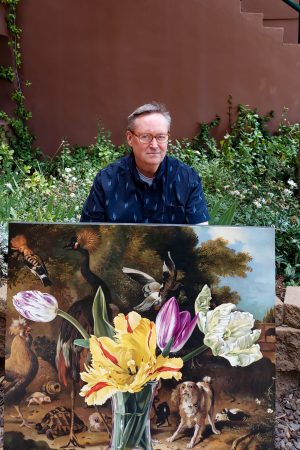 George Speer, Ph.D.
George Speer, Ph.D.
Associate Professor of Art History
Art History Program Coordinator
Dr. George V. Speer, Associate Professor of Art History, received his doctorate from Washington University in St. Louis and his Master of Arts in Art History from Southern Methodist University. Dr. Speer also holds a Master of Fine Arts in Theatre from Trinity University in San Antonio and a Bachelor of Arts degree from Wake Forest University. Dr. Speer’s teaching portfolio in the Department of Comparative Cultural Studies includes surveys and special topics courses in the modernist narrative, from the late eighteenth century to global contemporary art.
Prior to his appointment at Northern Arizona University, Dr. Speer was Curator of the Luce Foundation Center for American Art at the Smithsonian American Art Museum. In addition to his responsibilities in CCS, Dr. Speer served for twelve years as director of the NAU Art Museum, where he curated, designed, and wrote catalogues for a range of juried, thematic and monographic exhibitions. As director, he was instrumental in the acquisition of two important gifts, that of the Arthur M. Sackler Study Collection of ancient Asian artifacts and the Aaron M. Macy Memorial Collection of contemporary Northwestern Native American art.
Professor Speer’s first book, titled Things of the Spirit: Art and Healing in the American Body Politic, 1929-1941 was published in 2012. Other publications include an article on Diego Rivera’s mural program Detroit Industry, published in the Bulletin of the Detroit Institute of Arts, and contributions to Variations on America: Masterworks from American Art Forum Collections and H.W. Janson and the Legacy of Modern Art at Washington University. Current research projects include an article on the visual culture of fascism in the United States in the interwar years, and another titled Cyrus Baldridge and Caroline Singer: Sojourners at the End of Empire, which explores the problem of defining a postcolonial politics among Westerners traveling in Asia in the 1930s. Dr. Speer is also at work on a book manuscript that examines the problematic relation of art and architecture in public building projects of the New Deal era.

